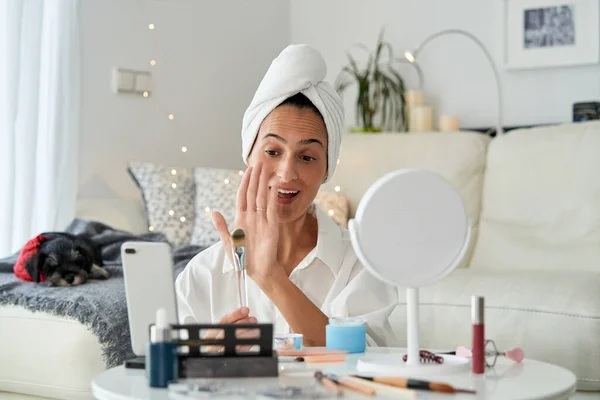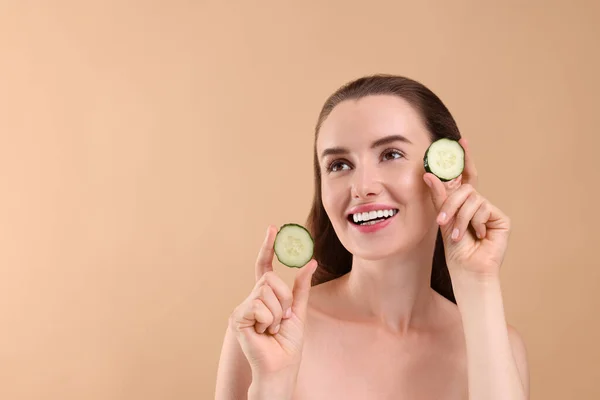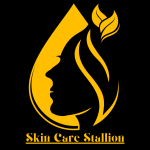Is skincare one word or two? It’s actually one word, commonly used to refer to the routine or products used for caring for the skin.
When it comes to beauty routines, every detail matters down to the very words we use. But have you ever stopped to wonder, “Is skincare one word or two?” It’s a small detail that has sparked a surprising amount of debate in the beauty world.
Whether you’re drafting a blog post, a social media caption, or just curious about the correct terminology, understanding the nuance of this single term could make all the difference in your skincare conversations. Let’s dive into the fascinating world of language and beauty to settle the score once and for all.

Is Skincare One Word
Yes, “skincare” is correctly written as one word. It refers to the products and routines used to maintain healthy skin. This term is widely accepted in beauty and dermatology. Its usage has evolved, becoming a standard term in the industry. This guide will explore common questions and details related to the term “skincare.”
Understanding the Term “Skincare”
“Skincare” is a single word that has gained significant traction in the beauty industry. As people become more conscious of their appearance and the health of their skin, the term has become essential in everyday language.
The word “skincare” encompasses a broad range of activities, from cleansing and moisturizing to applying specialized treatments like serums and sunscreens. In search engines, related terms like “skin care routine,” “best skincare products,” and “how to take care of your skin” are frequently searched.
Understanding that “skincare” as one word is correct helps in writing accurate and SEO-friendly content. This also ensures that your content aligns with user intent, as people searching for skincare advice often use related phrases like “skincare tips” and “skincare regimen.”
SEO Considerations for “Skincare”
Using “skincare” as one word is crucial for SEO optimization. When creating content, it’s important to incorporate related phrases such as “skincare routine,” “natural skincare,” and “best skincare products” to enhance your content’s visibility.
Search engines recognize these terms as highly relevant, boosting the salience of your content. Additionally, variations like “skincare routine” or “skin care products” should be naturally integrated into your writing.
This approach will not only improve your ranking but also resonate with your audience, who are likely searching for these exact phrases.
Linguistic Considerations
Compound Words in English
Explanation of Compound Words
Compound words combine two or more words to form a new meaning. They are a common feature in English, creating specific terms that convey particular concepts.
Types of Compound Words
Compound words can be categorized into three types: closed, hyphenated, and open.
Closed compound words
merge two words without spaces or hyphens (e.g., “notebook”).
Hyphenated compound words
use a hyphen to link words (e.g., “mother-in-law”).
Open compound words
keep the words separate but are understood as one unit (e.g., “post office”).
Examples of Each Type
Closed: “Bedroom,” “toothpaste.”
Hyphenated: “Well-being,” “long-term.”
Open: “High school,” “ice cream.”
Historical Development of Compound Words
Evolution Over Time
Compound words evolve as language changes. Over time, separate words can merge into a single word, reflecting shifts in usage and meaning.
The Process of Words Merging
The transition from “note book” to “notebook” illustrates how language simplifies over time. As a term becomes more commonly used, it often shortens into a closed compound for efficiency.
The Case for “Skincare” as One Word
Reasons for “Skincare” as One Word
“Skincare” is increasingly written as one word due to its widespread use in the beauty industry. As the term becomes more familiar, it follows the trend of merging into a single, recognizable word.
Comparison to Similar Words
Words like “healthcare” and “haircare” have also transitioned into single words. This trend reflects a broader linguistic shift towards efficiency and ease of understanding.

Industry Standards and Usage
Dictionary Definitions
Examination of Major Dictionaries
Leading dictionaries like Merriam-Webster, Oxford, and Cambridge provide insights into the accepted spelling of terms related to skincare. These sources are authoritative references for language use and play a crucial role in standardizing terminology.
Current Status: One Word, Hyphenated, or Two Words?
There is variance in how skincare-related terms are listed: some are written as a single word, others hyphenated, and a few as two separate words. Consistency in usage is key for both clarity and SEO, as search engines consider variations when ranking content.
Branding and Marketing Trends
Analysis of How Skincare Brands Spell the Term
Skincare brands are trendsetters in spelling conventions, often dictating industry norms. A review of brand websites, product labels, and marketing materials reveals patterns in term usage, which are pivotal in forming consumer expectations.
Consistency in Spelling Across Brand Websites, Product Labels, and Marketing Materials
Consistent spelling across digital and physical touchpoints enhances brand recognition. Inconsistent use can confuse consumers and weaken brand identity. Brands that maintain uniformity in spelling across platforms tend to perform better in search rankings.
Media and Publication Practices
Overview of How Major Beauty Publications Use the Term
Beauty publications like Vogue and Allure set the tone for language in the industry. Their spelling choices influence both consumer perception and industry standards, making their usage patterns significant for marketers and content creators.
Style Guides from Major Publications and Their Recommendations
Style guides from leading publications offer a definitive stance on term usage. These guides are essential for ensuring consistency in articles, blog posts, and other media content, ultimately affecting SEO performance and reader engagement.

SEO Considerations
Search Engine Trends
Analysis of search engine results for “skincare” vs. “skin care”
Search engines often treat “skincare” and “skin care” as similar but not identical. Analyzing search engine results shows that “skincare” is increasingly popular, especially in beauty and wellness. However, “skin care” can still capture unique searches, especially in a broader context.
Which spelling drives more traffic?
“Skincare” tends to drive more traffic due to its higher usage in beauty blogs, product descriptions, and social media. “Skin care,” though still relevant, is less frequently searched in comparison.
Keyword Optimization
Importance of consistency in content for SEO
Consistency in keyword usage is crucial for SEO. If you choose “skincare,” use it uniformly across your content. This helps search engines understand and rank your content effectively.
Best practices for using “skincare” in online content
Use “skincare” in titles, meta descriptions, and headers. Include related terms like “beauty routine,” “skin treatment,” and “healthy skin.” This strategy boosts relevance and improves your chances of ranking higher in search results.
Impact on Social Media and Hashtags
How spelling affects hashtag usage and discoverability
The spelling you choose influences your visibility on social media. The hashtag #skincare is more widely recognized and used than #skincare, affecting discoverability and engagement.
Popularity of #skincare vs. #skincare in social media trends
#Skincare is the dominant hashtag in beauty communities. It appears in millions of posts, making it the go-to choice for reaching a larger audience. To maximize reach, always use the more popular version.
Common Misconceptions
Regional Differences
Differences in Spelling Preferences Between American and British English
Many people mistakenly believe that American and British English are the same. However, they have distinct spelling preferences. For example, “color” in American English becomes “colour” in British English. Similarly, “organize” in the U.S. is “organise” in the U.K. These differences can cause confusion, especially in global communication.
Examples of Other Terms with Similar Variations
Beyond spelling, there are other terms with variations between the two forms of English. “Favorite” in American English is “favourite” in British English. The word “center” is spelled “centre” in the U.K. Such variations are common and often misunderstood. Knowing these differences helps in understanding regional writing styles and avoiding mistakes.
The Role of Auto-Correct and Spell Check
How Technology Influences Spelling Choices
Auto-correct and spell-check tools significantly influence how we spell words. These tools are typically set to a specific version of English, which can lead to unintended changes.
For instance, an American user may see “colour” corrected to “color” without realizing it. This automated correction can reinforce regional spelling preferences, leading to confusion.
Common Errors and How to Avoid Them
Common errors occur when auto-correct changes the intended spelling to match the set language preference. To avoid these mistakes, users should customize their language settings in their devices or writing tools.
Double-checking spellings before submitting important documents can also prevent these errors. Being aware of these technological influences ensures accurate communication.

FAQs
What is the correct spelling: “skincare” or “skin care”?
The correct spelling can be either “skincare” or “skin care,” depending on the context. “Skincare” as one word is more commonly used in modern contexts, especially in branding, marketing, and product descriptions. “Skin care” as two words is often used in more formal writing or to emphasize the care aspect specifically.
Has “skincare” always been written as one word?
No, “skincare” as one word has gained popularity over time. Traditionally, “skin care” was used more frequently, but as the beauty industry evolved, “skincare” became more widely accepted and is now often preferred in product names and casual usage.
Which version is more common in the beauty industry?
In the beauty industry, “skincare” as one word is far more common. Brands, bloggers, and retailers usually prefer this spelling because it’s concise and aligns with contemporary language trends. It’s often seen as more modern and appealing.
Should I use “skincare” or “skin care” in my writing?
The choice between “skincare” and “skin care” depends on the tone and style of your writing. For formal writing, such as academic papers or medical texts, “skin care” might be more appropriate. For blogs, product descriptions, or marketing materials, “skincare” is typically preferred.
Does using “skincare” versus “skin care” affect SEO?
Yes, it can affect SEO. “Skincare” as one word is often more optimized for search engines due to its widespread use in the industry. However, it’s a good idea to consider your audience and use both variations in your content to capture a broader range of search queries.
Are there any regional differences in the usage of “skincare” and “skin care”?
There are no significant regional differences in the usage of “skincare” versus “skin care.” Both terms are understood globally, though “skincare” as one word is more prevalent in digital content worldwide.
Is there a grammatical rule that dictates whether “skincare” should be one word?
There’s no strict grammatical rule that dictates whether “skincare” should be written as one word or two. The decision is more about convention and preference. Language evolves, and as “skincare” becomes more commonly used, it’s increasingly recognized as correct.
Conclusion
In conclusion, whether “skincare” is written as one word or two largely depends on context and style guidelines. While both forms “skincare” and “skin care” are used, “skincare” as a single word has become more prevalent in modern usage, especially in marketing, branding, and within the beauty industry.
This shift reflects the trend toward creating compound words for concepts that are closely related, streamlining communication and reinforcing the idea that skincare is a cohesive and essential part of daily routines.
However, it’s important to consider the audience and specific style guide requirements when deciding which form to use.

